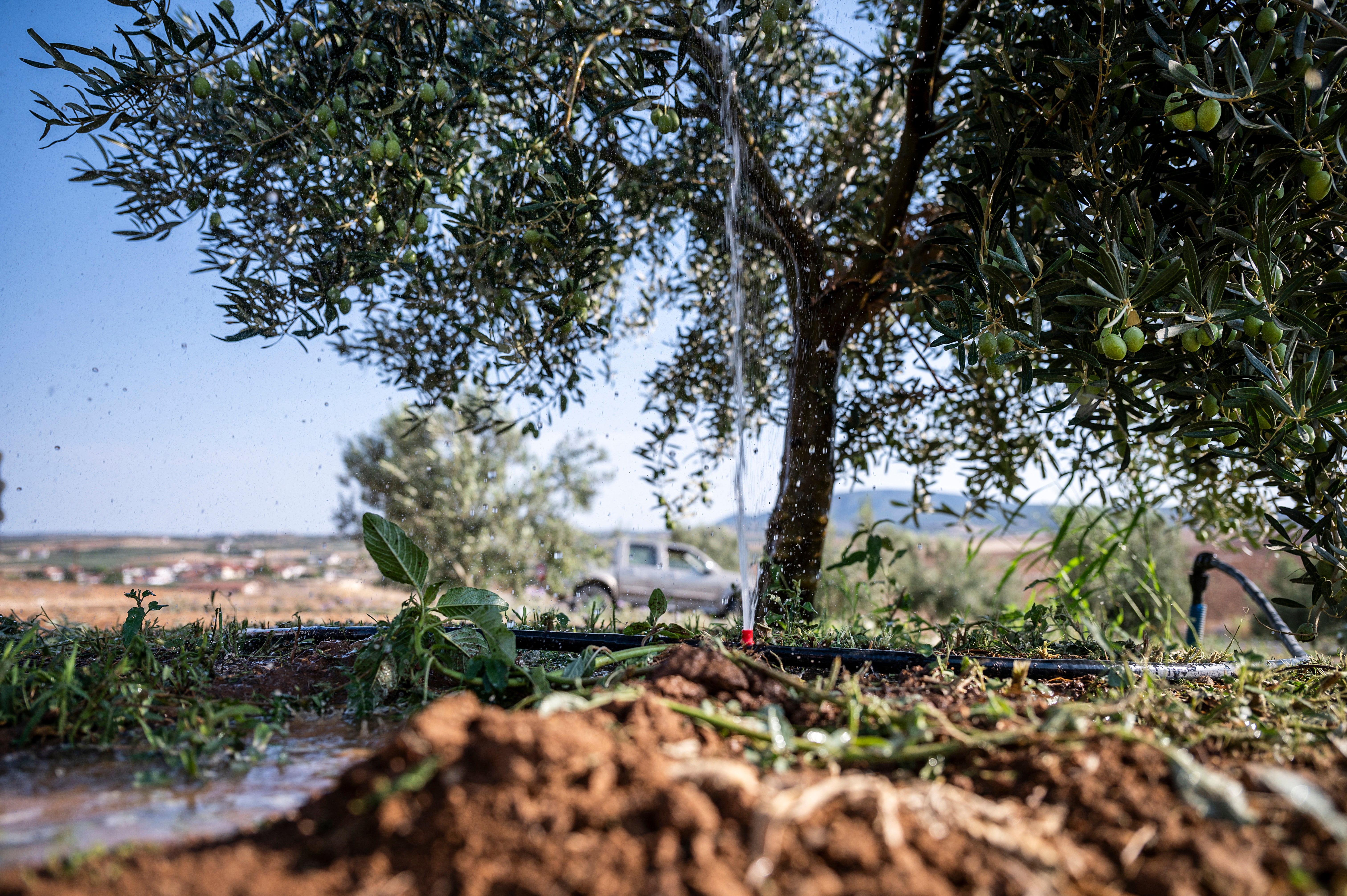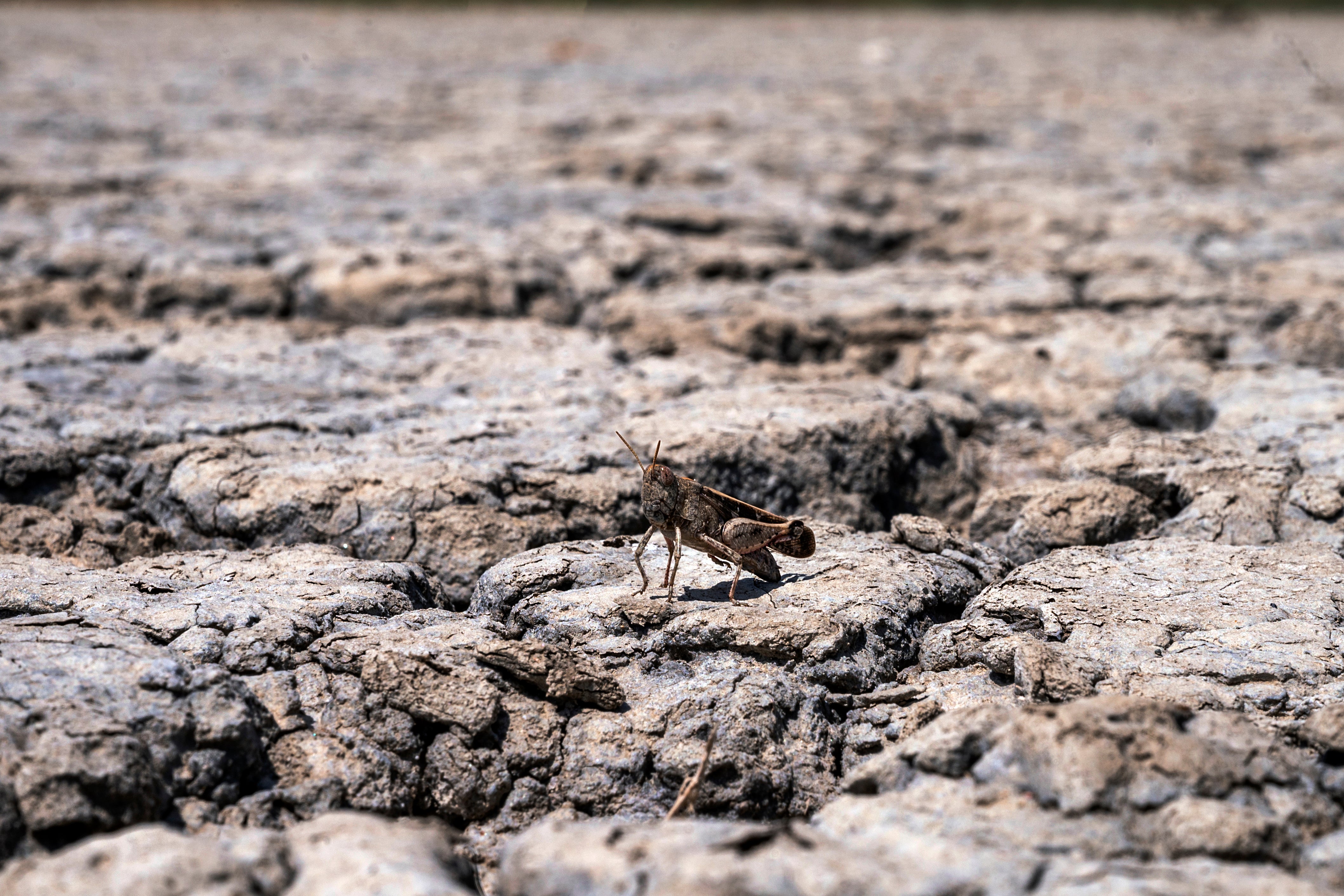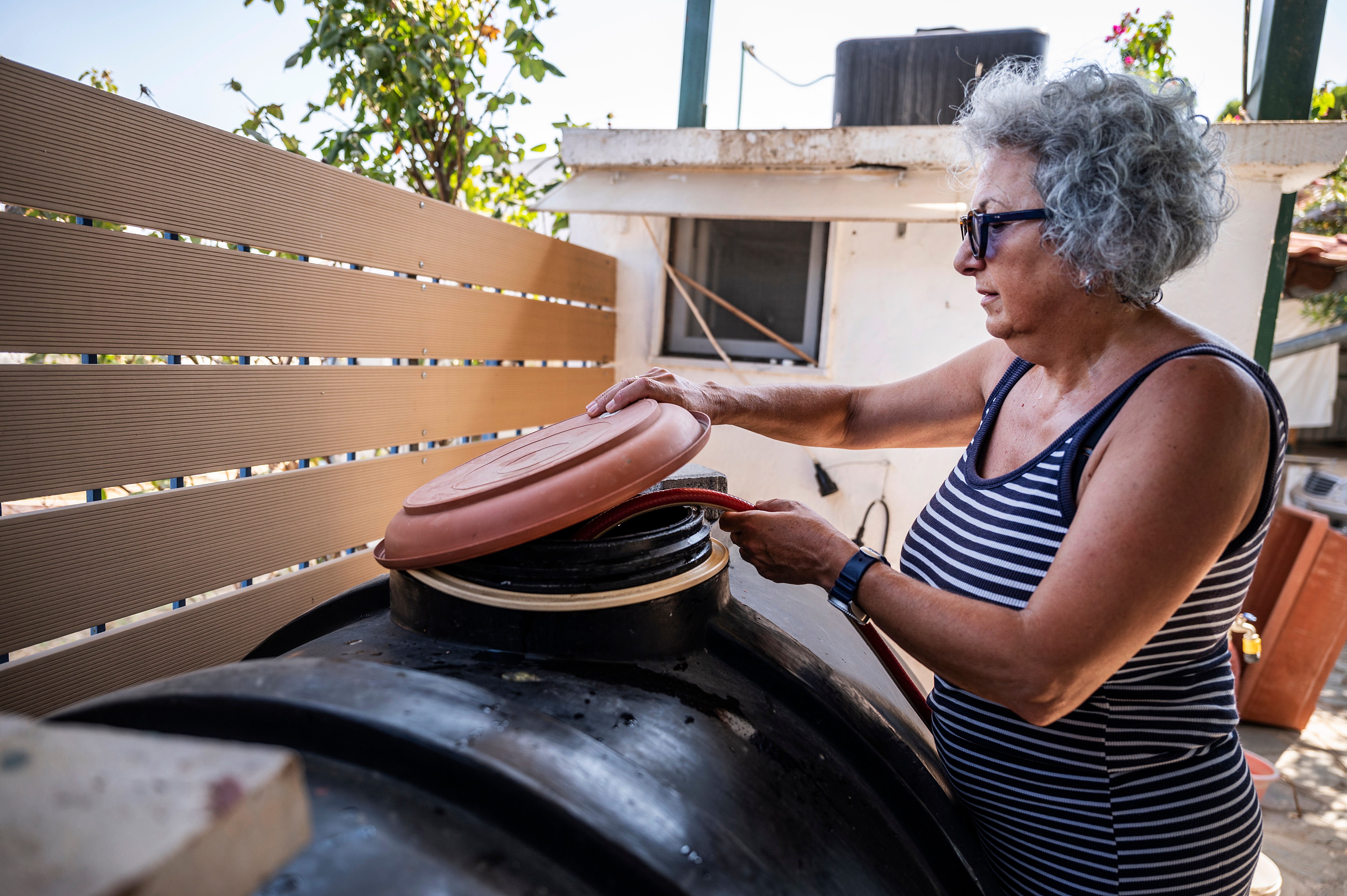Six weeks before harvest, there’s no water left in the ground for farmer Dimitris Papadakis’ olive grove in northern Greece, so he has started a new morning routine.
Joined by his teenage son, he uses a truck to bring water from nearby areas. Using a small generator, he connects the vehicle to irrigation pipes to save what’s left of his thirsty crop.
“Our boreholes have almost dried up … We now depend on tankers to irrigate our fields,” says Papadakis, who heads an agricultural cooperative in a village in Halkidiki, a three-fingered peninsula in northern Greece which is popular with tourists.
This summer, southern Europe has been hammered by successive heat waves, following on from below-average rainfall for up to three years. Drought spots on the map of the region have expanded. In Greece, the effects include water shortages, dried-up lakes, and even the death of wild horses.

The groundwater beneath Papadakis’ 270 olive trees is dwindling and becoming brackish, with the drought expected to cut his expected yield in half.
The water crisis has been exacerbated by a booming tourist season.
In Kassandra, the westernmost finger of the peninsula, the year-round population of 17,000 swells to 650,000 in the summer, placing unsustainable pressure on water resources.
“We’ve seen a 30-40% reduction in water supply following three consecutive winters with almost no rainfall,” says local mayor Anastasia Halkia.

Haroula Psaropoulou owns a home in the area, in the seaside village of Nea Potidea. She says it’s hard to cope with frequent household water cuts that may last up to five days during the searing heat.
“I recycle water from the bathroom sink and from washing, and I use it for the plants,” the 60-year-old Psaropoulou says. “I’ve also carried water from the sea for the toilet.”
According to the European Union’s Emergency Management Service, acute drought conditions currently exist around the Black Sea, stretching westward into northern Greece.

Click Here to Read the Full Original Article at The Independent Travel…
